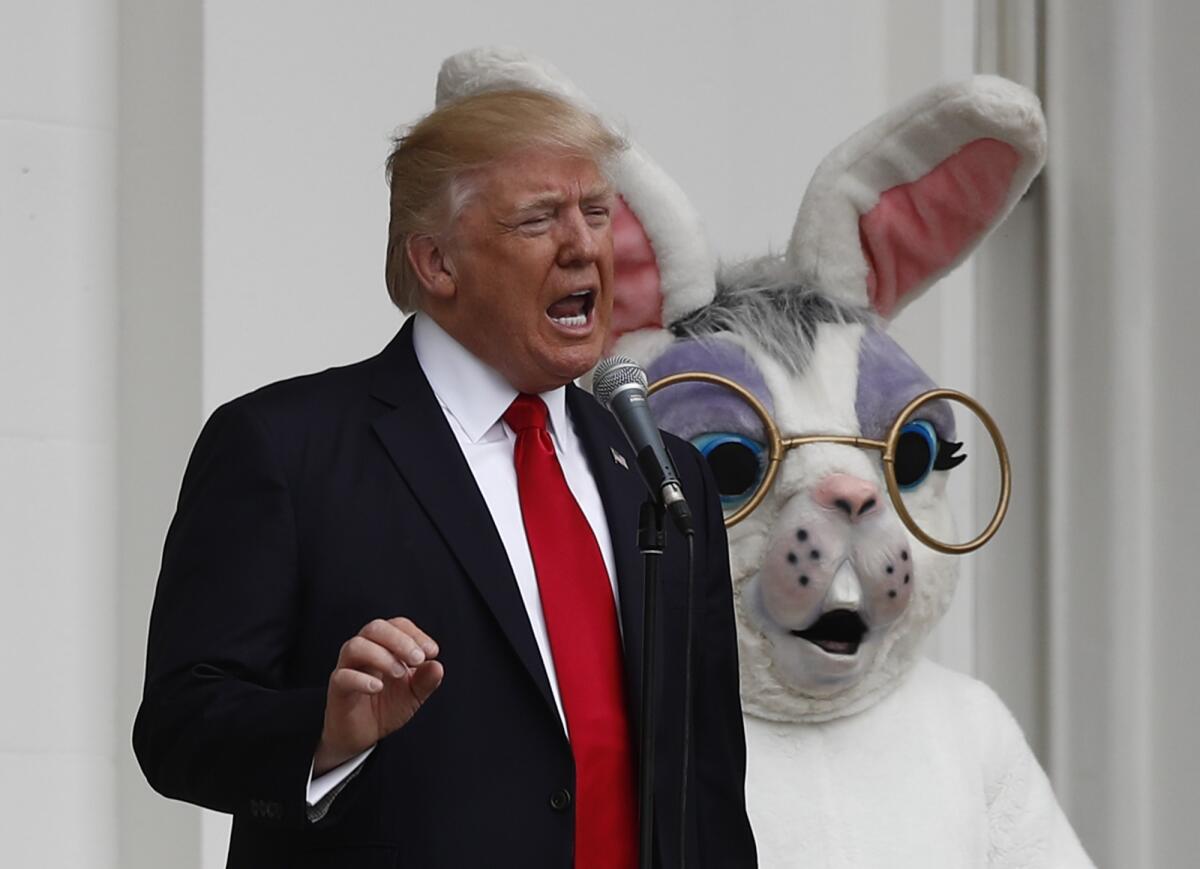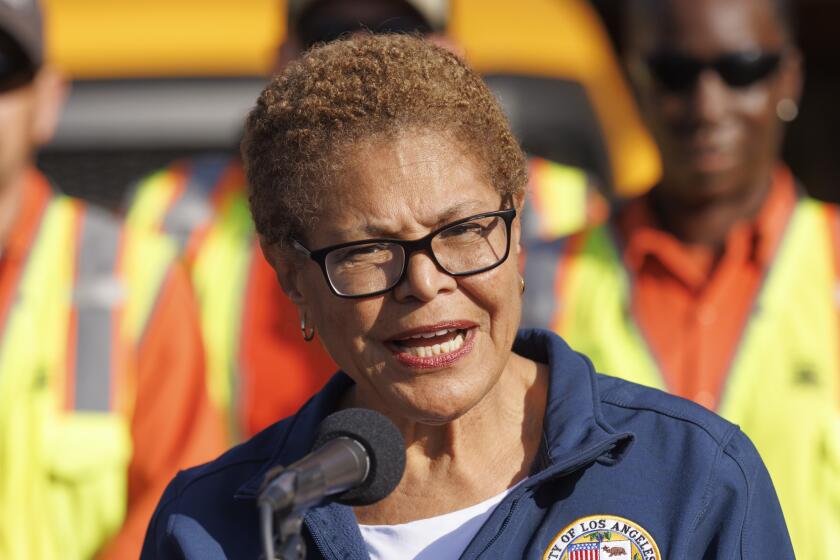Op-Ed: Trump doesn’t have the authority to order the country back to work by Easter. Here’s why

- Share via
President Trump may hope to have the nation “opened up and just raring to go by Easter,” as he said on Tuesday, but he has no authority to order businesses to reopen or to override the decisions of state and local governments that they should remain closed to stop the spread of COVID-19.
The president’s desire to have things up and running again by April 12 carried with it the implication that he might issue some kind of order ending the shutdown that has occurred because of the pandemic.
We all hope that the health measures taken will have succeeded by then and that restrictions will no longer be necessary. But public health experts seem highly doubtful that the country will be able to resume normal activities that soon without risking an escalation in cases of the disease that could put the healthcare system at risk of collapse.
I am not a public health expert, nor is the president, who not long ago declared the coronavirus to be a “hoax.” I can, though, speak to the constitutional issues. If state and local governments wish to continue their health restrictions, they may do so, and the president has no legal authority to order otherwise.
Under the Constitution, state and local governments have what is termed “police power.” This means they have authority to take any action not prohibited by the Constitution or federal law to protect the health and welfare of their citizens. It is firmly established that this authority includes the ability to take actions necessary to stop the spread of communicable diseases, including the imposition of quarantines. Likewise, state and local governments have the power to order businesses closed, as has been done across the country, to stop the spread of the coronavirus.
I expect at some point someone will challenge these restrictions, and I have no doubt the government will win. In a public health emergency, the government always has been granted the powers needed to stop the spread of a deadly communicable disease.
The powers of the federal government are more limited. A federal law allows the federal government to stop people crossing state lines or entering the country to limit communicable diseases. But no federal law gives the president power to order businesses to close or, for that matter, to open.
Congress has power under the Constitution to regulate commerce among the states, and this has been extended to broadly allow the regulation of businesses, even intrastate businesses. In theory, Congress could adopt a law requiring businesses to close or to open as a regulation of commerce. If Congress, for example, adopted a law mandating that businesses open by Easter notwithstanding the coronavirus, that could preempt state and local regulations to the contrary. But Congress isn’t going to be so foolish as to enact such legislation if public health experts strongly advise against it.
Trump on his own lacks the power to act. Presidents can issue executive orders, but they are limited to governing the executive branch of government. Trump could therefore issue executive orders as to how federal agencies should engage in procurement. But he cannot enact laws regulating businesses or people’s conduct on his own. That is the legislature’s prerogative.
Trump has shown a wildly inconsistent view of the authority of state governments during his presidency, embracing federalism when it suits him and dismissing it when it doesn’t. He was all for federal power when California attempted to chart its own course on auto emissions, for example. But then, in this crisis, he was all for governors and the states handling things themselves — until now, when he seems to be declaring himself the person who can order people back to work by Easter.
The president can exhort state and local governments to lift their restrictions. He can try to persuade businesses to open and defy the closure orders. He can ask Congress to pass legislation. But he cannot override state or local law, and he cannot provide immunity from sanctions to those who violate state and local restrictions. The bottom line is that if California, or other states, or cities or counties, feel the need to continue restrictions beyond Easter they may do so.
No one denies the devastating effect of the coronavirus and the closures on the American economy. Everyone looks forward to a return to normalcy. But Trump is not helping by asserting an end to closures by Easter when he has neither the public health knowledge to inform such a decision nor the constitutional authority to make it happen.
Erwin Chemerinsky is dean of the UC Berkeley School of Law and a contributing writer to Opinion.
More to Read
A cure for the common opinion
Get thought-provoking perspectives with our weekly newsletter.
You may occasionally receive promotional content from the Los Angeles Times.










